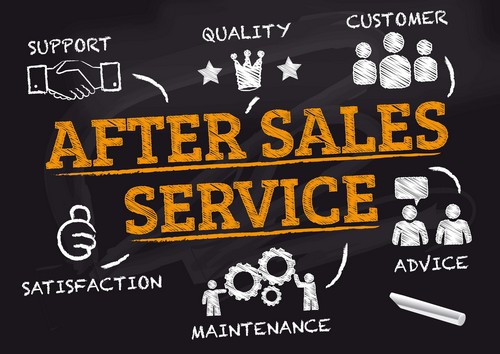Table of Contents
What is Industrial Sales? 6 Characteristics of Industrial sales
Industrial sales or B2B sales is a touch business due to the inherent nature of industrial sales. Industrial sales is used for bulk products or larger machines which are generally high in value or high in quantity. Typical example of industrial sales includes selling machinery to manufacturing companies or selling a large amount of raw material to chemical companies etc.
Naturally, because of the huge exposure and dependency on the product of industrial sales, the risk rises. If a manufacturing company is buying the manufacturing machines from a vendor, and the machine does not work, the company will suffer huge losses. If there is repeated breakdown in the machinery, that will stop work too. Therefore, there are many considerations which a company takes while buying industrial products. Because of these factors at play, industrial sales becomes difficult and it is very different from B2C sales.
Here are 6 characteristics and features of Industrial sales.
1) Fewer customers

Unlike B2C sales, where the next customer you enter your store is a potential customer, in B2B sales, the number of customers is very far and few. Imagine for a moment that you were selling Ice cream making machines. Now, there are very few ice cream manufacturers in the market and you have limited reach for these machines. Naturally, the customer base is small.
Because there are fewer customers, the competition is likely to be higher. The higher the value of the product, the more will be the competition and the more will be the importance of differentiation.
2) Concentrated markets
Another key factor in Industrial sales is the saturation of the market which makes it difficult to sell. Many times all the players of the industry can be found in a given geography. Example – All textile based manufacturers will be located in one part of the town where the government has helped them establish.
Due to such concentrations, the reach of all companies becomes easier, the market becomes open and becomes more and more concentrated. Few key customers matter the most. The geographical or demographic segment becomes restricted thereby leading to saturation and drop in prices, making it very difficult to sell the wares.
3) Complex purchasing decisions
Industrial sales constitute of some of the most complex purchasing decisions solely because of the value of the products as well as because of the number of people involved in decision making. Many buying processes involve not only the purchase manager, but the main owner, the technical engineer, and consultant as well.
Due to so many people involved, a long time is taken for decision making and finalizing the product. Negotiations also happen back and forth, prolonging the final decisions. An Industrial sales person not only has to manage the buyer, he also has to manage the technical person as well as the commercial team. There are many breads he has to butter.
In fact, for products which are technically complicated, the sales is done not only by a single salesperson but an engineer is involved as well. Thus, whenever a company enters Industrial selling, it has to take these complex purchase decisions into consideration.
4) Long-term relations
In Industrial sales, unlike B2C sales, once a contract is established, it is maintained for a long time. The customer lifetime value is big because a customer does not like to redo the whole procedure of buying products from different vendors. Once he has finalized a vendor, as long as the vendor keeps the buyer happy, they do not shift brands.
As a result, in Industrial sales, customer retention is more important than customer acquisition. An effective salesperson who belongs to the industrial selling category should be efficient enough to build his own personal relations over the years. These personal relations act as a bond between the two companies as both the companies become dependent on each other. The buying company needs the material repeatedly and the selling company needs sales and revenue.
As a result, after-sales service and maintenance of relations play a major role in industrial sales. Constantly being in touch with the customer, keeping him updated about the latest developments, helping the customer in case of SOS calls are some of the tactics needed to maintain long-term relations with the industrial customers.
5) Reciprocal arrangements
In many industries, reciprocal arrangements also take place. In such cases, one company might supply the raw material to another and in return might take other products from the firm. This is especially observed in chemical and pharma industries where both industries benefit. However, In such cases, the salesperson are the ones who are affected the most because a major sales point is lost to the salesperson.
Another issue with such arrangements is that the seller does not face much competition and hence is unlikely to differentiate or renovate the final product. The buyer is not getting additional benefits which he would have received had he been in the open market.
6) After-sales Service and Brand promise
In Industrial selling, after sales service has a major impact on purchase. Purchase managers are unlikely to interact or entertain brands which have strung them up after the sales have taken place. A common terminology which exists in Industrial sales is “Blacklisting of a company”. Basically, if any company has not met the demands of an industrial buyer or has cheated them in any ways possible, the company can likely be blacklisted affecting its brand image as well as sales in the industrial market.
Because an industrial market is a closed and tight knitted group, the brand promise matters a lot. A Buyer or purchase manager who is working in one pharma company might work in a different one in the next year. So if he carries some bad experience with the seller, or if he has good relations with a particular selling company, he is likely to cancel your contract in the new company as well. Hence, after-sales service, brand promise and maintaining a very good brand image are critical aspects of Industrial sales. The better they are, the more prospects for the company.
These were the various characteristics and limitations of industrial sales. From a sales person’s point of view, these characteristics can work to his advantage or disadvantage depending on how branded the company is.
Liked this post? Check out the complete series on Sales
